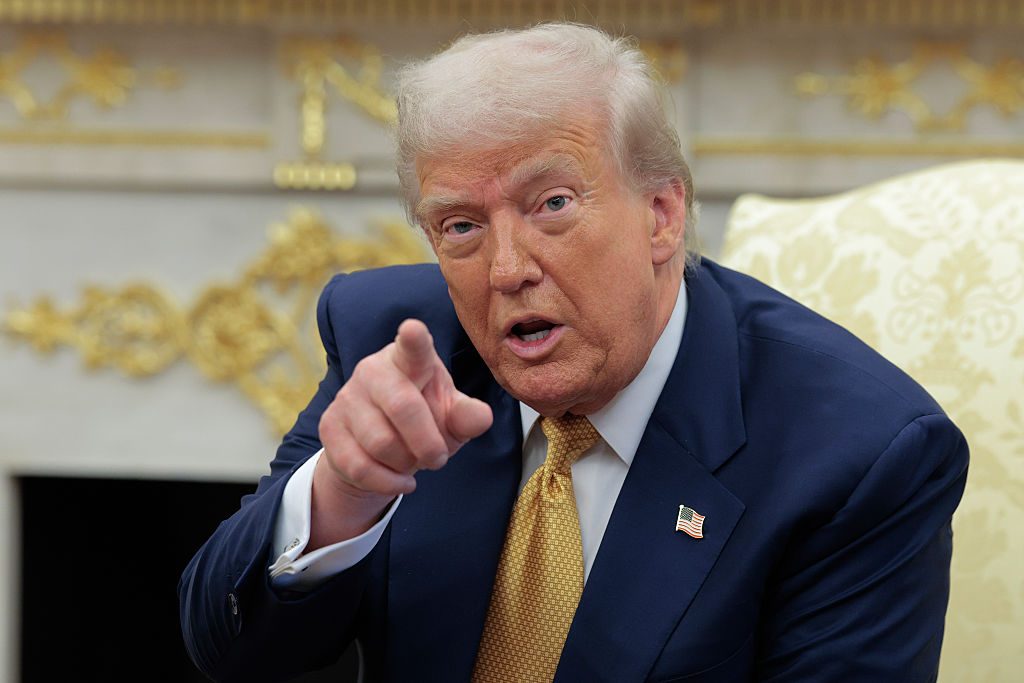For years, populists have complained about stock trading by members of Congress. There’s literally an account on X with over a million followers that monitors congressional trades. On Wednesday, the Senate Homeland Security and Governmental Affairs Committee approved a bill that would ban such stock trading. With all Democrats joining with Missouri Republican Josh Hawley to approve the measure, the contentious 8-7 vote revealed the tension between the ideology and the sociology of American populism.
The HONEST Act (formerly the PELOSI Act) would more or less immediately ban stock trading by members of Congress, the president, and the vice president. It would also require those individuals to divest from many investments — such as stocks and many other securities — over their next term. In a fiery committee hearing, Hawley and other supporters laid out the populist logic for the bill: many Americans are concerned that the Washington elite is using its political power to enrich itself, so, as Democratic Arizona senator Ruben Gallego put it, ending congressional stock trading could “rebuild that trust”.
An anxiety about elite self-dealing and disconnection from the people is indeed one of the major themes of American populism. On a sociological level, however, many of the leading populists in the United States and elsewhere come from a business background. When he launched his presidential bid a decade ago, Donald Trump tapped into that long-simmering grassroots desire for an outsider to bring change to Washington. Many of those in Congress most aligned with Trump — such as Wisconsin senator Ron Johnson or Florida senator Rick Scott — made fortunes in the marketplace, and the President frequently recruits and endorses veterans of the business world.
From the businessman-populist perspective, the provisions of the HONEST Act might be more fraught, especially the requirement that those in office divest from their current business holdings. At Wednesday’s committee hearing, Johnson repeatedly warned that the bill would discourage business leaders from entering politics, forcing them to sell off assets they had spent a career building. He and others alleged that the passage of the bill could further entrench career politicians by discouraging business mavericks from disrupting the political class.
Crucially, this bill, unlike the earlier PELOSI Act, would apply to the president, and Donald Trump went nuclear on the legislation and Hawley himself in a Truth Social post. The President accused Hawley of being a “pawn” of the Democrats and said that the bill would be bad for the country. Trump himself would be exempt from the divestment requirements of the bill, which would not begin until his successor’s term, but the restrictions on stock trading would apply to him.
The political advantages for Democrats supporting this bill are obvious. Still paralysed after its November defeat, the party has so far seemed unwilling to break with the social policies that have driven away many working-class voters. Opposing congressional stock-trading gives Democratic politicians a vehicle for claiming that they want to help restore accountability for elected officials, and this could augur a broader progressive gambit of agitating against the alleged influence of corporate interests as a way of harnessing populist energies. For some Democrats, an added bonus might be that the passage of this act would deter members of the Trump family from future presidential tickets.
Trump’s opposition to the bill gives it almost impossibly steep odds as written, and the White House’s legislative red lines are not yet clear. Many Republican critics of the bill have homed in on the divestment provisions, so a more targeted bill banning congressional stock trading — without requiring complete divestment — might address some of those concerns. In a Fox News hit late on Wednesday night, Hawley said that, despite his earlier comments, Trump supports a ban on congressional stock trading.
The travails of the HONEST Act highlight how the ongoing political realignment isn’t merely ideological. It’s also about the social conditions and experiences of the agents of political disruption.











Join the discussion
Join like minded readers that support our journalism by becoming a paid subscriber
To join the discussion in the comments, become a paid subscriber.
Join like minded readers that support our journalism, read unlimited articles and enjoy other subscriber-only benefits.
Subscribe